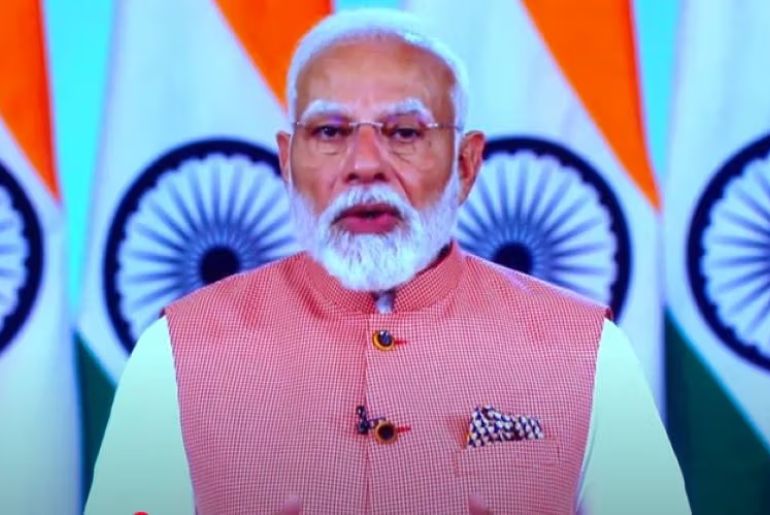Prime Minister Narendra Modi emphasised the need to increase battery production and storage capacity within the energy sector as the country’s adoption of electric vehicles picks up speed.
India’s electric mobility is developing quickly. Speaking at the India Energy Storage Week event, Modi stated, “We must increase battery production and storage capacity to meet this demand.”
India’s adoption of electric vehicles is still in its infancy, and two- and three-wheelers are the primary drivers of this expansion. Electric car sales in India increased by over 27% annually to 1.95 million units in 2024.
Currently, imported batteries from South Korea, Japan, and China power the majority of electric vehicles marketed in India.
Localisation of cell manufacturing is being closely examined since, in addition to reducing the nation’s reliance on imports, made-in-India lithium-ion batteries have the potential to spur the uptake of electric vehicles.
However, the availability of raw materials is the largest obstacle to the production of lithium-ion batteries in India. Battery manufacturers are forced to rely on imported raw materials because India lacks substantial stocks of minerals like lithium, cobalt, nickel, and graphite.
China and Hong Kong are the main suppliers of India’s lithium-ion battery industry, which is mostly dependent on imports.
The government has completely exempted 35 new capital products used in the production of batteries from BCD in the recently released Union Budget. Additionally, scrap lithium-ion batteries and scrap copper and cobalt, two essential minerals, are now exempt.
With a total investment of Rs 34,300 crore for the first six years, the government has launched the National key Minerals Mission with the goal of increasing exploration and lowering reliance on imports for key minerals.

